PLEASE CLICK ON ‘WATCH ON YOU TUBE’
PLEASE LIKER AND SUBSCRIBE!
COMMENTS WELCOME ON YOU TUBE OR FURTHER DOWN THIS PAGE
EXTRACTS (full version here)
Motorpsycho Nitemare
Motorpsycho Nitemare is a comic ‘shaggy dog’ story that appears on what is generally regarded as Dylan’s first ‘post protest’ album, Another Side of Bob Dylan (1964). Motorpsycho Nitemare represents a kind of bridge between the comic political and social commentary of Dylan’s early ‘talkin’ blues’ songs and the surreal landscapes of satirical pieces like Bob Dylan’s 115th Dream, Subterranean Homesick Blues, Tombstone Blues and Desolation Row. It is also the first Dylan song to show a strong cinematic influence; as tendency which will come to the fore in the songs on the Desire album.
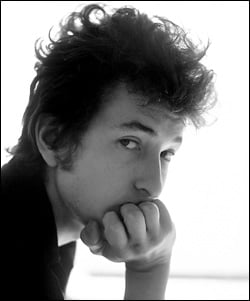
Only two years after the Cuban Missile Crisis, various elements of the cold war – such as the CIA’s attempts to discredit or kill Cuban revolutionary leader Fidel Castro, including poisoning his cigars and using thalium salts to make his famous beard fall out – were already seen as highly farcical. Earlier in the year, Stanley Kubrick’s brilliant black comedy Dr. Strangelove (Or How I Learned to Stop Worrying and Love the Bomb) – a devastating attack on the mentality behind the ‘nuclear standoff’ – had been released, revealing that only through comic exaggeration could that mentality be confronted in any effective way.
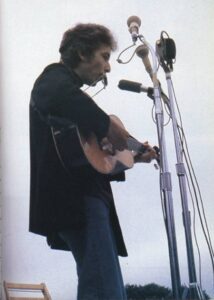
The Story of Motorpsycho Nitemare
The narrative begins with the young man desperately knocking at a farmhouse door. He is clearly stranded and needs somewhere to stay. Then we hear that …Out comes a farmer, he must have thought that I was nuts/ He immediately looked at me and stuck a gun into my guts… The clearly crazed rifle-wielding farmer demands to know if he is …that travelling salesman that I have heard about… Our hero has to work hard to pacify him. He gets down on his knees and begs: …I dig farmers, don’t shoot me please!… In one of the song’s funniest couplets he pleads …I’m a doctor and it’s true/ I’m a clean cut kid and I’ve been to college too… We can be sure that he has invented the bit about being a ‘doctor’ in a desperate attempt to portray himself as respectable. It is highly likely that he is actually a penniless traveller who is looking highly dishevelled. His assertion that he is a ‘clean cut kid’ is very dubious.
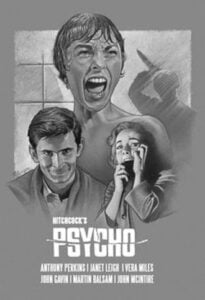
Then Rita, the daughter, appears.…She looked like she stepped out of La Dolce Vita…. Dylan deadpans. He is clearly referring to Anita Ekberg, the beautiful and extremely well endowed star of Fellini’s surreal movie; a favourite of the ‘art house’ crowd in Greenwich Village. Dylan had previously name checked the actress in I Shall Be Free, one of his early ‘talking blues’ songs. The narrator now tries to ‘cool it’ with the farmer by …telling him what a nice pretty farm he had… although of course it is really Rita rather than the farm who he finds ‘pretty’. The farmer is still suspicious, demanding …What do doctors know about farms, pray tell?… The narrator shoots back …I was born at the bottom of a wishing well!… He finally wins the farmer round and is offered a bed ‘underneath the stove’ on condition that …You don’t touch my daughter and in the morning milk the cows…
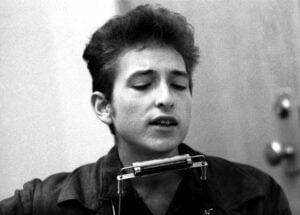
At this point we may expect that Rita will try to seduce our hapless traveller. She certainly does wake him up, but not in the way he expects. As Dylan sings: …I was sleepin’ like a rat when I heard somethin’ jerkin/ There stood Rita, lookin’ just like Tony Perkins… The rhyme is, of course, very contrived. But it helps to build up the dark humour of the verse. In Psycho Anthony Perkins portrayed the psychopathic killer Norman Bates, who after murdering his mother periodically dresses up like her to murder guests at his motel. One of the most shocking elements of Psycho is that the heroine of the story, Marion Crane (Janet Leigh) is murdered half way through the film in the notorious shower scene. Presumably Rita is dressed up like an old lady here, although we are never told this. She merely says …”Would you like to take a shower/ I’ll show you to the door…
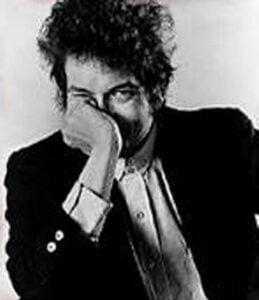 In the final verse of Motorpsycho Nitemare he tells us, not surprisingly that …I don’t think I’ll be back there for a spell / Even though Rita moved away and got a job at a motel… Meanwhile the farmer is apparently still waiting for him with gun loaded: …He wants to turn me in to the FBI… Finally he provides us with a quick philosophical reflection on the First Amendment: …Me I romp and stomping, thankful as I romp/ Without freedom of speech I might be in the swamp… The verse has two more Psycho references. Marion Crane is murdered in a motel and Norman Bates dumps her body in a nearby swamp. The final statement is an especially funny rhyme, indicating both a metaphorical and a real ‘swamp’.
In the final verse of Motorpsycho Nitemare he tells us, not surprisingly that …I don’t think I’ll be back there for a spell / Even though Rita moved away and got a job at a motel… Meanwhile the farmer is apparently still waiting for him with gun loaded: …He wants to turn me in to the FBI… Finally he provides us with a quick philosophical reflection on the First Amendment: …Me I romp and stomping, thankful as I romp/ Without freedom of speech I might be in the swamp… The verse has two more Psycho references. Marion Crane is murdered in a motel and Norman Bates dumps her body in a nearby swamp. The final statement is an especially funny rhyme, indicating both a metaphorical and a real ‘swamp’.
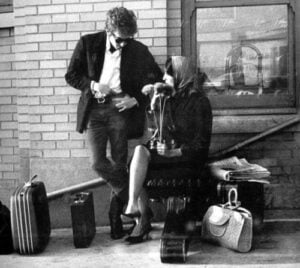
Despite the way it mocks the extreme views of ‘redneck’ Americans, Motorpsycho Nitemare cannot really be called a ‘protest song’. It is more of a comic burlesque which uses judicious exaggeration to lampoon the reactionary views of characters like the farmer, to whom Fidel Castro was nothing less that the devil incarnate. Significantly, Hitchcock himself stated in a 1964 interview that Psycho was actually meant to be a comedy. It must be borne in mind, however, that Hitchcock – like Dylan – was prone to use interviews to ‘wind up’ interviewers with deliberately mischievous or controversial statements. But it does seem that Dylan understood that in the movie Hitchcock was playing a game with the audience by deliberately defying their expectations. Just as Hitchcock continually surprises his audience by placing events in a highly unconventional order, so Dylan’s light hearted attack on reactionary values startles his listeners by heading off on such a ‘left field’ track. In doing so, however, he implicitly compares the ‘Reader’s Digest’ mentality of right-wing ‘middle America’ to the psychotic obsessionalism of a character like Norman Bates.
LINKS
THE CAMBRIDGE BOB DYLAN SOCIETY
STILL ON THE ROAD – ALL DYLANChS GIGS
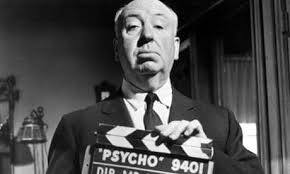


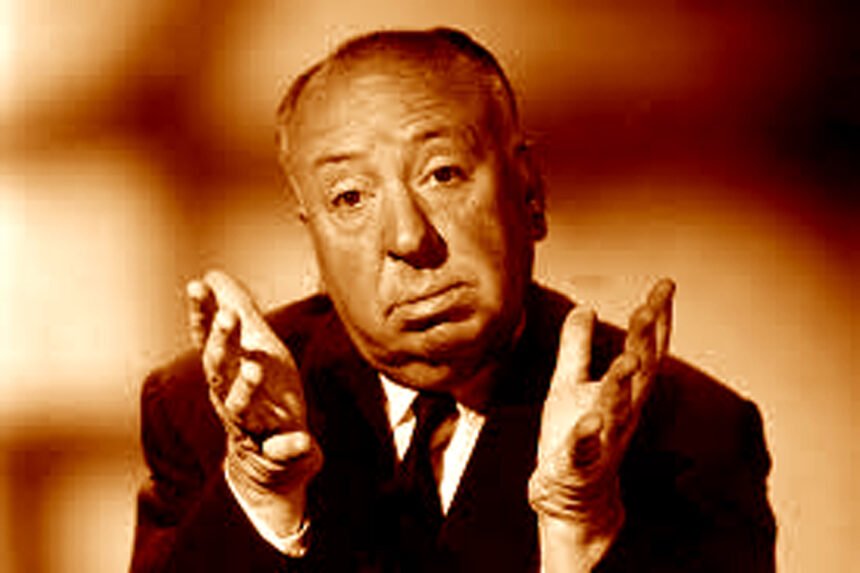
Leave a Reply